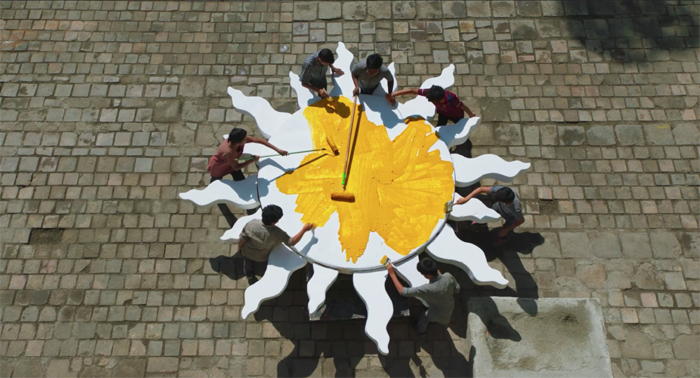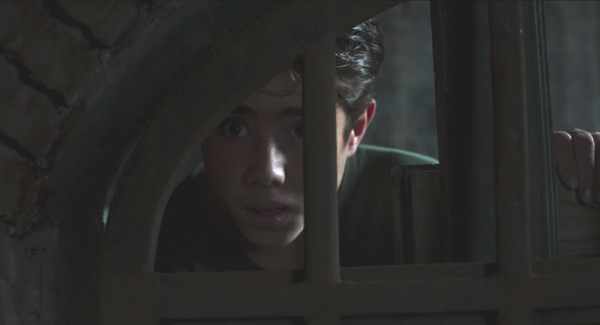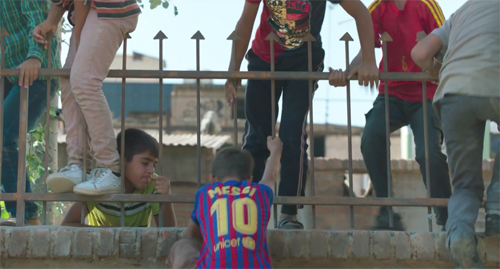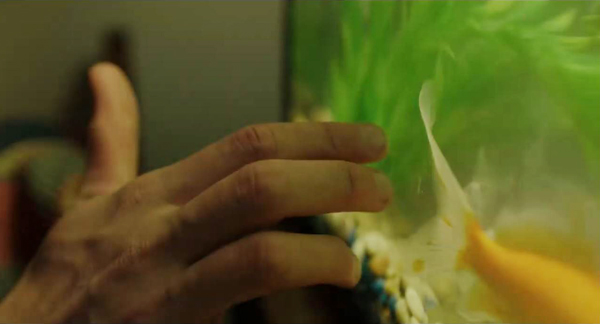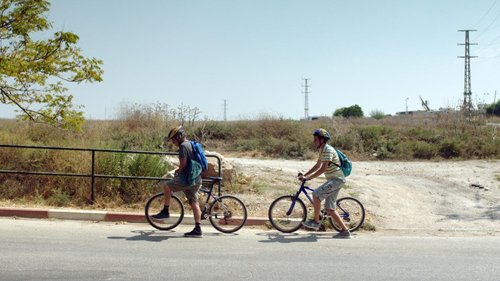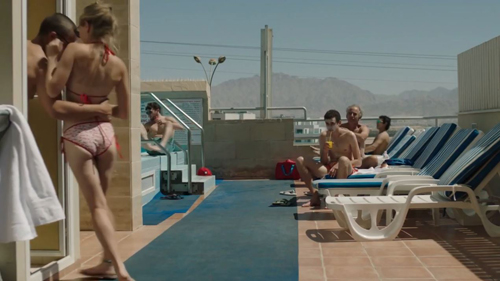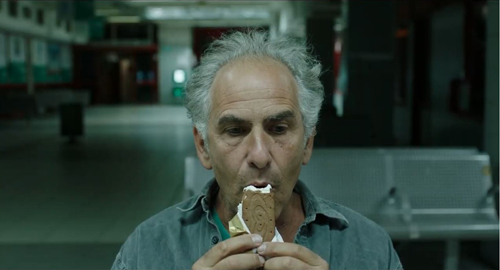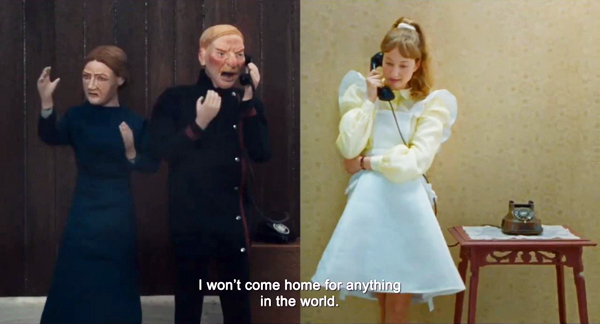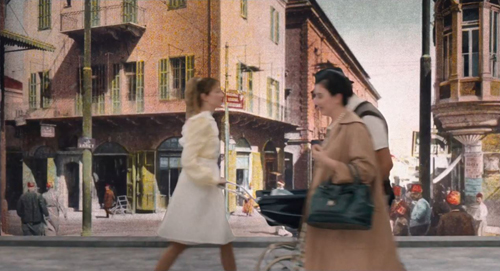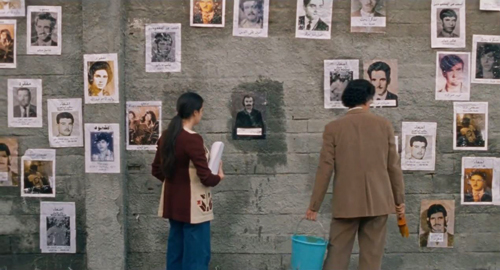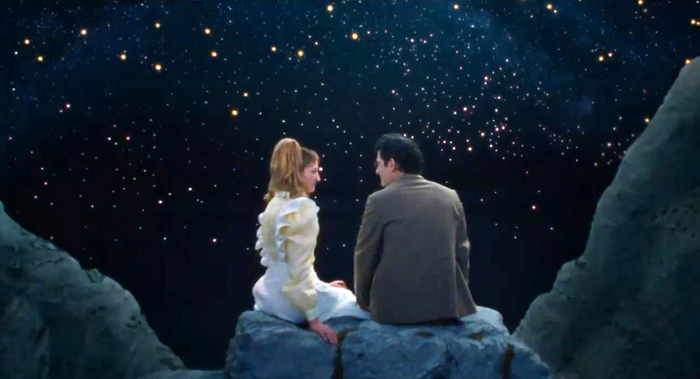Sun Children (2020)
Kristin here:
The Wisconsin Film Festival [2], online this year, continues through this coming Thursday. Films for which audience members buy tickets are all available to watch until 11:59 that night. So far our experiences have been that the streaming system works quite smoothly, with easy access to your chosen titles. Despite geo-blocking (dictated by distributors) in some cases, many films can be watched from outside Wisconsin and the Midwest.
Now, let’s visit the Middle East.
Iran: Sun Children and There Is No Evil
Despite the tragic death of Abbas Kiarostami and the exile into relative obscurity of the Makhmalbaf family, the Iranian cinema continues to produce important films by a small number of auteurs, most prominently Oscar-winner Asghar Farhadi (whose A Hero was recently acquired by Amazon [4] for release later this year), Majid Majidi, the irrepressible Jafar Panahi, and his equally irrepressible colleague Mohammad Rasoulof.
The latter’s There Is No Evil (2020), which won last year’s Golden Bear as best film at the Berlin Film Festival, is on the current WFF program. I wrote about it [5]last year from the Vancouver International Film Festival.
Also on the program is Majidi’s latest, Sun Children, which we saw for the first time. Those who think of Iranian festival-oriented films as developing slowly and subtly will be surprised by this one. It is jam-packed with a multi-strand dramatic plot, suspense, fast cutting, and many characters, all handled very skillfully by Majidi.
The film begins with a dedication to the “the 152 million children forced into child labor and those who fight for their rights.” That child labor, as the exciting opening scene emphasizes, often involves small crimes. Four boys set out to steal a tire from a car in the parking garage of a luxurious, multi-storied shopping mall. The suspense begins right away as a guard confronts them. Two of them flee in a classic chase scene, going up through the levels of the mall, past high-end shops that they could never dream of entering. They escape, and it is revealed that the four friends work at a large repair shop, full of stacks of tires, presumably acquired in the same fashion.
Soon Ali emerges as our point-of-view character, desperate to rescue his mother from a mental-health facility. There she lies strapped to a bed after a presumed suicide attempt. Eventually it emerges that the family home recently burned, killing Ali’s sister, whose death drove his mother mad. His father is an addict, and Ali has become the breadwinner. A small-time crime boss sets him a task: enroll in a local school and explore the basement and tunnels under it (above), where a treasure is hidden.
Much of the rest of the film generates more suspense, as Ali diligently makes his way around various obstacles and crawls through branching tunnels day after day, always risking expulsion from the school if he is discovered. His three friends help him at first, but eventually he is left to traverse the seemingly endless tunnels (which are in fact the city’s storm drains).
This part of the film introduces another major plotline, since the school, dependent on private donations, is located in the slums of Tehran. Its aim is to teach young, desperate, potentially criminal boys skills that they can use to get honest jobs. The school is far behind on its rent and in danger of being closed. This adds further suspense as the school officials, particularly a sympathetic vice principal, struggle to find donors. The schools debts lead to one of the film’s big action scenes, as, finding the gates locked one morning, the principal urges the boys to scale the fence. They do this with a determination that reveals their realization that their only hope for a decent life lies in the education they have been receiving.
They eagerly participate in a festival and pageant put on for potential donors (top).
In an interview, Majidi said that the “Sun School” that gives the film its name is based on an actual school [7] in the Tehran slums, the “Sobhe Rooyesh” (“Morning of Growth”). The non-professional child actors, whose performances are all completely natural and affecting, were recruited from the school and surrounding slums. Roolholloh Zammi, who plays Ali, won the Marcello Mastrioanni Award at Venice last year. (I wish we could have been there to see him win!) Only the adults are played by [professional actors.
Israel: Here We Are (2020)
Given the current situation in Israel, it is just as well that Nir Bergman’s gentle psychological study Here We Are (a sadly unmemorable title) has no reference at all to politics, the military, or ethnic tensions. It’s a simple story of a man who has given up his career to care for his severely autistic son and is having difficulties facing the fact that the boy is nearly a man.
The early scenes set up Uri’s disabilities, as well as his obsessions (including pet goldfish–above–and dogs) and phobias (snails). They also establish Aharon’s utter devotion and patience as he cooks yet again Uri’s favorite pasta stars and uses an obviously well-established imitation game to coax his son past imagined snails on a biking route.
The plot action kicks in when Ahron’s estranged wife Tamara shows up, determined to arrange Uri’s transfer to a group home for young people with disabilities. Ahron angrily resists, claiming that Uri is happy at home and that he can care for his son himself.
We seem to be set up to view Ahron as the noble, self-sacrificing father and his wife as the shrewish woman who wants to dictate her son’s life. Eventually, however, Tamara obtains the legal papers requiring Ahron to bring Uri to his new home. Ahron sets out, but along the way he decides to go on the run with Uri, despite having little money.
Along the way there are growing hints that Ahron is stifling both Uri and himself. Twice he simply ignores Uri’s budding sexuality during encounters with young women.
The two seek shelter with an old friend of Ahron’s, Effi, an art teacher who reveals that Ahron had had a prominent and lucrative career as an artist and designer, which he had given up to care for Uri. Her attitude toward Ahron suggests her openness to a romantic relationship with him. Eventually we begin to doubt that he is acting in the best interests of himself and Uri, especially during a scene in which they are forced to dine on ice-cream sandwiches in a bus-station waiting-room.
Here We Are is a film that unfolds gradually and overturns your expectations slowly but thoroughly.
France-Lebanon: Skies of Lebanon (2020)
Chloe Mazlo is a French animator and artist who has previously made shorts (including The Little Stones, which won the 2015 César for Best Animated Short). Inspired by her grandparents’ life in Lebanon (he was Lebanese, she Swedish) during the lengthy civil war, she has made a feature that combines occasional animation with live action.
The film starts out in a stylized, fantastical world that inevitably has led critics to compare Skies of Lebanon to Amélie (2001). Alice, the heroine, is alienated from her parents and her home country, Switzerland, and take a job as a nanny in Beirut. The city as it was in the 1950s is represented by matte shots of actors presumably filmed against a green-screen, with backgrounds filled in by blow-ups of tinted postcards of the period. Such shots have a charming effect.
Alice meets cute with a handsome physicist whose goal is to invent a rocket to put the first Lebanese astronaut into space. Their romance develops in a fantasy landscape of patently artificial rocks and stars (bottom). They settle down together, raise children, and pursue their careers, with Alice becoming a watercolorist.
The fantasy strain in the film is most obvious in the brief animated scenes, as when a split-screen telephone conversation juxtaposes the real Alice with puppets representing her angry parents, who demand that she return home (top of section).
About a third of the way into the film, the tone switches abruptly as the Lebanese civil war breaks out. The animations and postcard background disappear. As characters flee and disappear mysteriously, a shot of a wall with “have you seen” photos pasted up emphasizes the danger that Alice is trying to ignore.
Even during the lengthy wartime portion of the film, there remains a faint underlying humor. Yet the abrupt shift of tone when the war starts is unsettling, given that we had settled down for a whimsical romance and end up with a war story. Presumably the idea is to emphasize how war breaks into the calm of ordinary life and banishes it. Whether audiences will take it that way is another matter. On the whole, however, the film is an imaginative and promising first feature.
The Festival’s Film Guide page [15] links you to free trailers, podcasts, and Q &A sessions for each film.
Thanks as ever to the untiring efforts of Kelley Conway, Ben Reiser, Jim Healy, Mike King, Pauline Lampert, and all their many colleagues, plus the University and the donors and sponsors that make this event possible.
Skies of Lebanon (2020)
